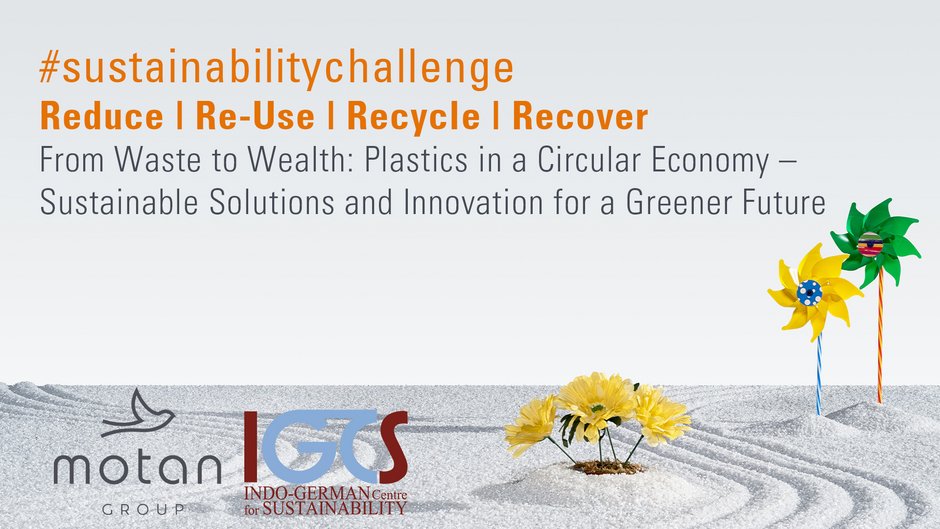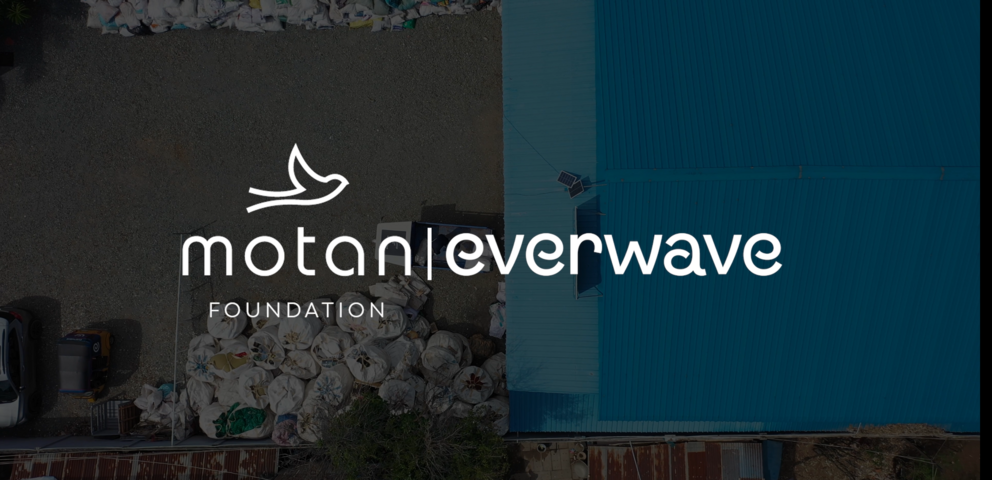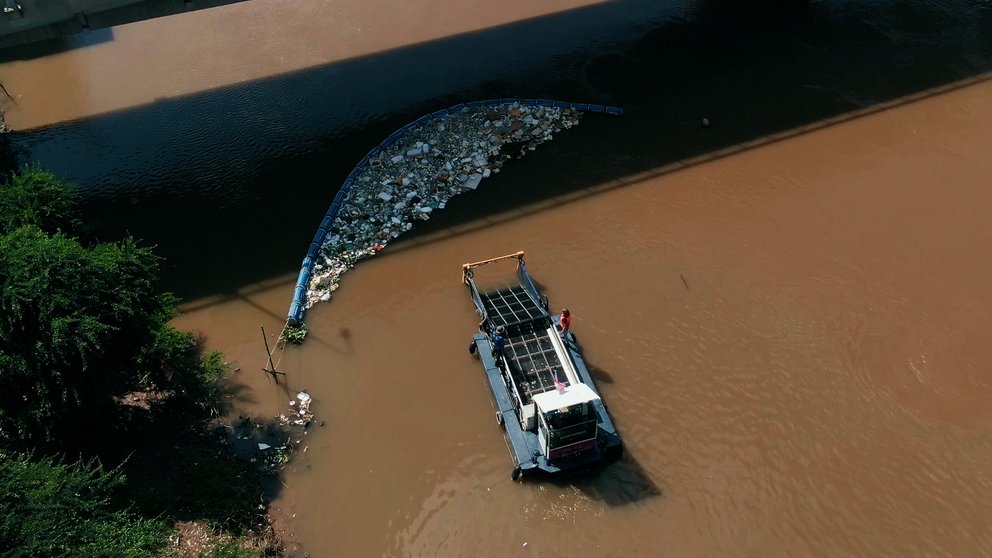From Waste to Wealth: Plastics in a Circular Economy – Sustainable Solutions and Innovation for a Greener Future
Twelve students came together on December 2 and 3, 2024 for the two-day virtual workshop to learn about the complex relationships between plastics and sustainability. Once again this year, they were supported by a large number of experts from industry and science, who shared their knowledge and experience in keynote speeches. By combining different disciplines and practices, a holistic understanding should be created, which is essential for the development of sustainable solutions.
One of the key topics addressed by the speakers was water pollution. Dr. Andreas Fath from the Faculty of Medicine and Biosciences at Furtwangen University highlighted the urgent need for effective science communication. He based this on his study on plastic pollution in large rivers, which revealed significant disparities in plastic waste management practices across countries. Jacqueline Plaster, Regional Manager Southeast Asia at everwave, presented the great projects the start-up is undertaking to curb water pollution. For its activities, motan also sponsored a tricycle last year, which helps to efficiently transport the collected plastic waste in Cambodia. Dr. Alexander Kronimus, Managing Director for Circular Economy and Climate at PlasticsEurope Deutschland e.V., focused his keynote speech on the UN Global Plastics Treaty and the steps to be taken by this legally binding global instrument to end plastic pollution. Another important topic was the valorization of plastics, for example through the Buy Food with Plastics India initiative presented by Shakti Yadav, which aims to encourage communities to exchange plastic waste for essential goods such as food. Or the approach of Plasticpreneur GmbH, which was explained in Raphaela Egger's keynote speech. It offers a worldwide access to plastic recycling machines, molds and services and thus converts plastic waste into valuable, sustainable products at a local level. Finally, possibilities on how disposable plastics can be replaced by natural materials from the very beginning were explained.

After the inspiring keynote speeches, the students had the opportunity to put what they had learnt into practice in small groups. Each group dealt with an important topic that is relevant to a sustainable plastics industry. Impressive projects were also created this year; and not only were the students able to benefit from new knowledge, the best teams were also awarded with prize money and certificates.
The ‘Re-Union Model’ was particularly outstanding: a concept for companies in which uniforms are borrowed, returned at the end of their service life, recycled and lent out again. This specifically addresses the problem of large quantities of waste in the textile industry.
In summary, the workshop was a complete success. The students were open and engaged, asked numerous questions and engaged in interesting discussions. We hope that all participants were able to take away valuable insights and look forward to maybe seeing some of the ideas in practice soon.
The IGCS
The IGCS is a joint Indo-German centre, which develops fundamental and applied interdisciplinary research, teaching and training, and dissemination of information in different fields of sustainable development. The IGCS wishes to be one of the premier centres of excellence in the field of engineering, environmental and related social sciences. It aims at offering cutting edge solutions in sustainable research through bilateral relations between India and Germany. IGCS is coordinated by RWTH Aachen University and IIT Madras and funded by the German Academic Exchange Service (DAAD) in the programme „A new Passage to India “.



